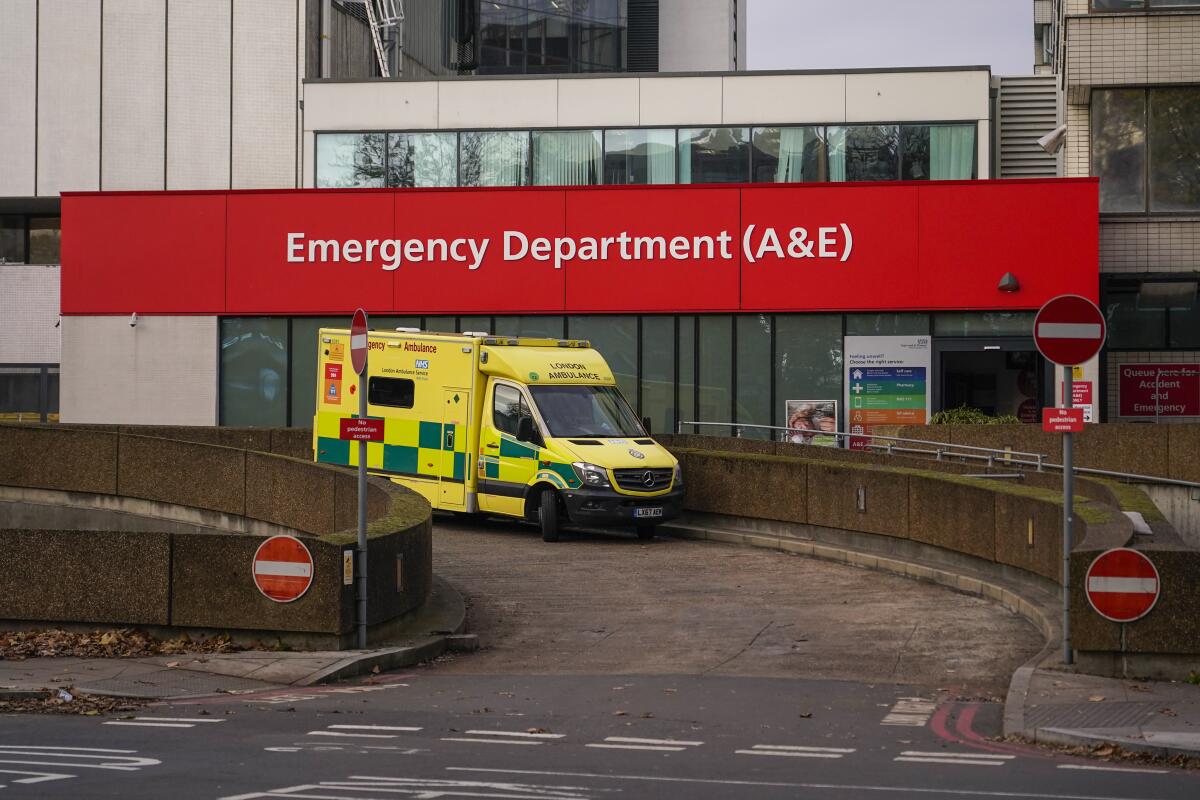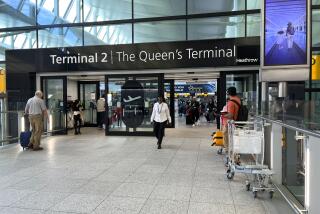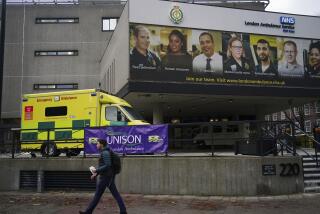U.K. ambulance service struggles in winter healthcare crisis

- Share via
LONDON — Thousands of patients each week are being stranded for long stretches in ambulances outside overflowing British hospitals, a growing crisis that has likely contributed to scores of deaths, healthcare leaders said Thursday.
The U.K.’s ambulance service is seizing up in some areas as the country’s health system faces an inferno of pressures, including rising demand for care after pandemic restrictions were eased; a surge in flu and other winter viruses after two lockdown years; and staff shortages from pandemic burnout and a post-Brexit drought of European workers in Britain. Thousands of hospital beds are also occupied by people who are fit to be discharged but have nowhere to go because of a dearth of places for long-term care.
Official statistics show that ambulances in many areas are stuck waiting outside hospital emergency departments, sometimes for hours, because there are no beds for the patients. Figures published Thursday by the National Health Service showed 31% of patients arriving at hospitals in England by ambulance waited at least 30 minutes to be handed over last week, and 15% waited more than an hour.
Dr. Adrian Boyle, president of the Royal College of Emergency Medicine, told the BBC that more than 200 people who died in England last week were affected by “problems with urgent and emergency care.”
Stephen Powis, the NHS national medical director for England, said the state-funded health service “is facing a perfect storm, with winter virus cases rapidly increasing alongside ongoing pressures in emergency care and hugely constrained bed capacity.” He said the NHS has set up a series of “war rooms” across the country aimed at marshaling data and sending ambulances to less-busy hospitals to reduce waiting times.
Strikes are about to put even more pressure on the system. Ambulance staff in three unions have voted to stage strikes in December, part of a wave of action by workers in many sectors demanding pay raises to match record inflation. Nurses have also voted to go on strike for two days this month in areas covering about half of England.
“It’s carnage at the moment — the worst I’ve ever seen it,” said George Dusher, a paramedic in northern England who voted to strike. “People are ringing for an ambulance and are then stuck waiting on the floor for 10 hours because we can’t get to them. We’re not getting to cardiac arrests quickly enough because of delays.
“I used to see up to 10 patients during a shift, now it’s just three or four because of the delays in hospital admissions.”
The pressures have renewed a long-running debate about how to fund and run Britain’s National Health Service, set up in 1948 to provide free care to all, funded through taxation. As in other industrialized countries, longer life expectancies and an aging population have increased demand on the widely beloved but constantly overstretched service.
The NHS also has long been a political hot potato. Opposition politicians accuse the Conservative Party, in power since 2010, of consistently underfunding the health service or seeking to privatize it by stealth.
The government says funding continues to rise in real terms. It says public-sector workers are being offered pay increases but that it can’t afford to give out raises to match inflation, which hit 11.1% in October.
More to Read
Sign up for Essential California
The most important California stories and recommendations in your inbox every morning.
You may occasionally receive promotional content from the Los Angeles Times.









